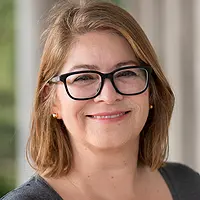A UK-led COP
This will be the 26th Conference of the Parties (COP26), or countries that have signed the UN Framework Convention on Climate Change. Parties have been meeting since 1995, when COP1 was held in Berlin. This year’s meeting will be held in Glasgow and chaired by the UK. As president of the COP, the UK government has been working through its diplomatic channels to build support for the goals of the conference.
Goals of COP26
As described by UK Prime Minister Boris Johnson, COP26 goals relate to “coal, cars, cash and trees.” With a growing recognition that countries must transition to net zero carbon economies and help vulnerable groups adapt to the effects of climate change, negotiations will seek commitments on:
-
Coal: Phasing out fossil fuels from electricity generation
-
Cars: Electrifying transportation
-
Cash: Providing the $100 billion/year levels-of-finance previously committed to make these shifts and help people adapt to the effects of CC already felt
-
Trees: Protecting and reviving forests as carbon sinks that are needed to achieve net zero emissions
Under the 2015 Paris Agreement, countries agreed to make national commitments, known as Nationally-Determined Contributions (NDCs), to collectively contribute to limit warming to 2°C by 2050, and increase their commitments over time. The Glasgow conference will mark the first-time countries are being asked to increase the ambition of their targets to put the world on a path to limit warming to 1.5°C by the year 2050—the level that scientists have concluded is critical to avoid the worst impacts of warming.
Global figures including President Biden, Queen Elizabeth, the Vatican Secretary of State and other heads of state will kick off the conference in a show of support for its goals and significance. Reaching an agreement in Glasgow will require that most of the world’s major emitters (USA, China, India, EU, Japan, Russia) find common ground on ways to grow while drastically reducing emissions. The issues are complicated – with varying national priorities, inequities between emitters and those who are most vulnerable to climate change, who and how to pay for needed changes, and more. There are major differences of opinion to overcome, and there is a lot of work to be done in just two weeks.
Help on the Sidelines
In parallel to the formal negotiations, climate activists, businesses, financiers, state and local government leaders, academics, and other members of civil society will participate as observers to the process, advocating for their critical perspectives. While the negotiators hammer out terms of the treaty, observers participate in what is the largest climate change conference of the year, with a robust program of side events ranging from panel discussions, demonstrations, workshops and dialogue. RTI International’s experts will join as many as 25,000 other conference attendees to engage, learn, and share our expertise on solutions for achieving these ambitious goals. It is a unique opportunity to exchange perspectives with colleagues from literally every country of the world and from diverse segments of each society.
RTI is Providing Solutions
RTI experts are helping clients and partners to understand what and how to deliver net zero carbon solutions and adapt to the effects of climate change. This includes supporting communities and populations most vulnerable to economic hazards adapt to the more frequent and severe impacts. Our assistance has ranged from helping the US government understand what and where domestic emissions are produced, identifying the potential for reducing greenhouse gas emissions from forestry and agriculture in several countries, assisting rural health clinics with electricity to support response to the COVID-19 global pandemic, and helping create jobs in critical sectors that are resilient to shocks from climate change.
Where Do We Go From Here
Our work will accelerate following COP26 as we help our clients and partners to assess and implement strategies that can help deliver upon the goals discussed at the conference. Our self-funded research will look at critical issues creating evidence-based learnings that will help us to innovate, catalyze actions, and scale up climate solutions. Through our newly-launched Center for Climate Solutions, we will share our insights for getting to the net zero carbon levels where science tells us we need to be, and for adapting and increasing our resilience to climate change. Please follow along via our Twitter and LinkedIn channels for updates on what we discover during COP26. You can also sign-up for our Climate newsletter.
We are all in this together to build a more sustainable future!
